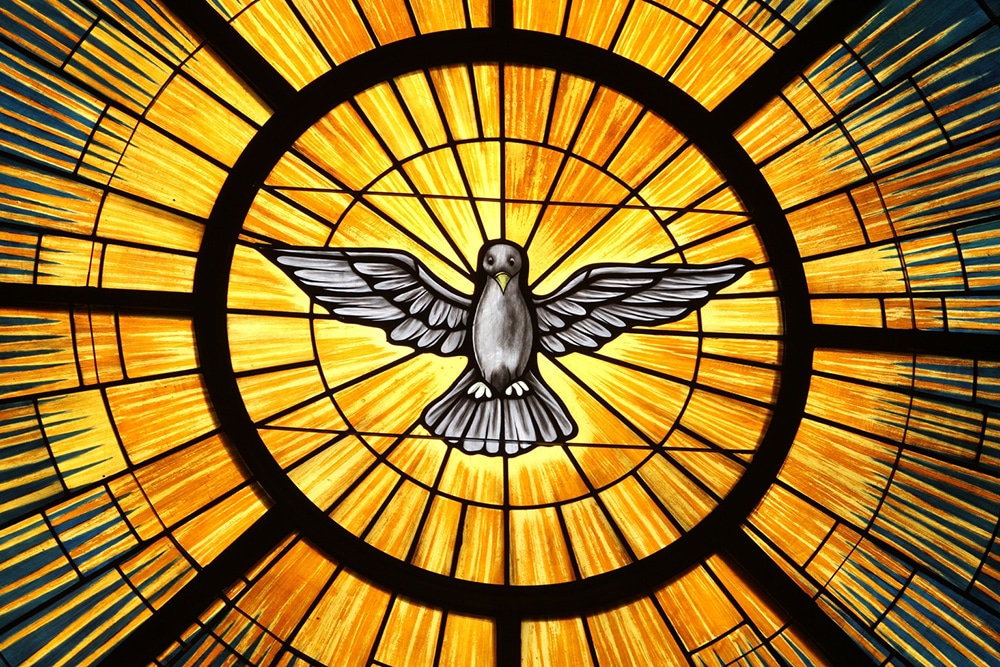
Yet, if we attend more carefully to the text, we may need to rethink our response. The serpent in the garden tempts Eve by introducing the idea of scarcity. God does not want you to eat from this tree, because God does not want you to be like God.
God is stingy.
Eve sees that the fruit of the tree is pleasant to the eyes, and therefore, she eats.
Adam is not exempt from this sin. If we are attentive to the words used by Eve in first addressing the serpent, she tells the serpent that God said not to touch or eat from the tree.
| May 23 – Pentecost Sunday |
|---|
|
Acts 2:1-11
Ps 104:1, 24, 29-30, 31, 34
1 Cor 12:3-7, 12-13
Jn 20:19-23
|
Except, this is not what God first told Adam before Eve was created from his side. God told Adam not to eat from the tree. God says nothing about touching.
Well before Eve eats from the tree, Adam has fractured communion with his beloved. He does not entirely trust the bone of his bones and the flesh of his flesh.
When he eats from the fruit of the tree, rather than throw himself upon the mercy of God and accept responsibility for his transgression, he blames.
Who is at fault? Not me. It is the woman that you, God, created!
The feast of Pentecost is the great reversal of this monstrous fall into scarcity. From a jealousy that seizes and grasps and blames rather than gives and receives and praises.
As we hear in the Gospel of John, the Spirit that comes to dwell in our hearts at baptism teaches us not through the Spirit’s own authority but that of the Father and the Son.
The Holy Spirit is not about the grotesque business of scarcity. The Spirit comes to glorify the Son who gave His life for the world. And the Son Himself testifies to nothing else but the merciful love of the Father.
Christ says the following about the Spirit, “He will glorify me, because he will take from what is mine and declare it to you” (Jn 16:14).
In that upper room, when the Spirit descends on the disciples, they proclaim the wondrous deeds of Christ. These are not the deeds of Peter, his personal preferences or thoughts about the events that transpired in Jerusalem over the last 50 days.
They are the words of the Son, the words of the Spirit, the words of the Father.
They are not his.
Pentecost is often referred to as the birthday of the Church. And that is right.
But what is the Church but the communion of believers who have learned to say with the Spirit, “Not mine but yours.”
The Church is not a collection of individuals, who just happen to believe in God in the same place.
The Church is the Body of Christ, the Temple of the Holy Spirit who cry out together in a marvelous harmony, “Not mine.”
The feast of Pentecost thus provides an occasion for reflection in every parish in the United States.
When people encounter us, do they discover the teachings of Jesus, the mercy of the Father, the consoling love of the Spirit? Or do they encounter our own ideas shrouded in sanctified language but not the words of the Son?
Are we a community that remains attached to the hideous logic of scarcity, afraid to share the Gospel or trembling before the possibility of sharing all things in common, especially our money?
Come Holy Spirit, fill the hearts of believers.
And teach us anew that nothing we have is ours.
Timothy P. O’Malley, Ph.D., is the director of education at the McGrath Institute for Church Life at the University of Notre Dame.





